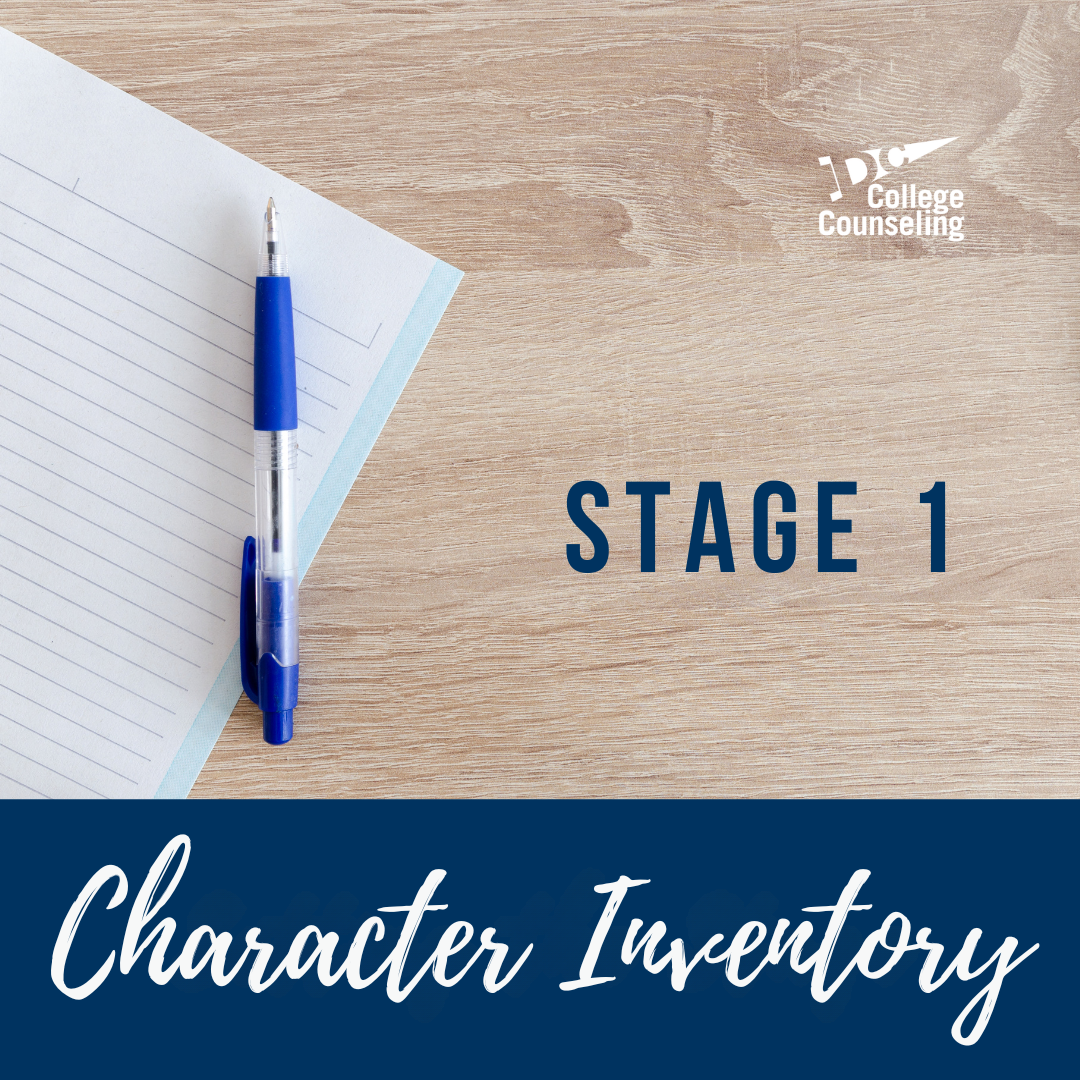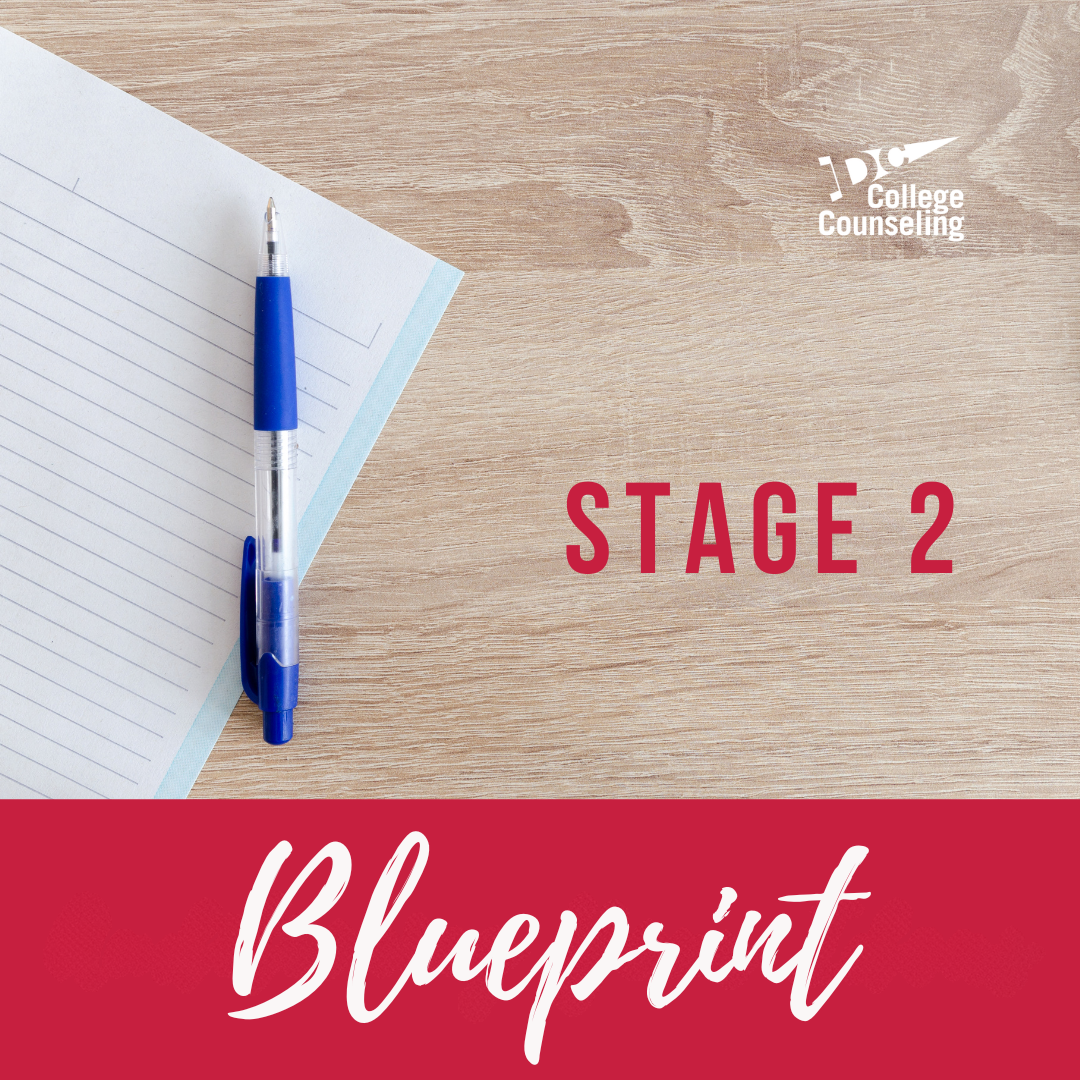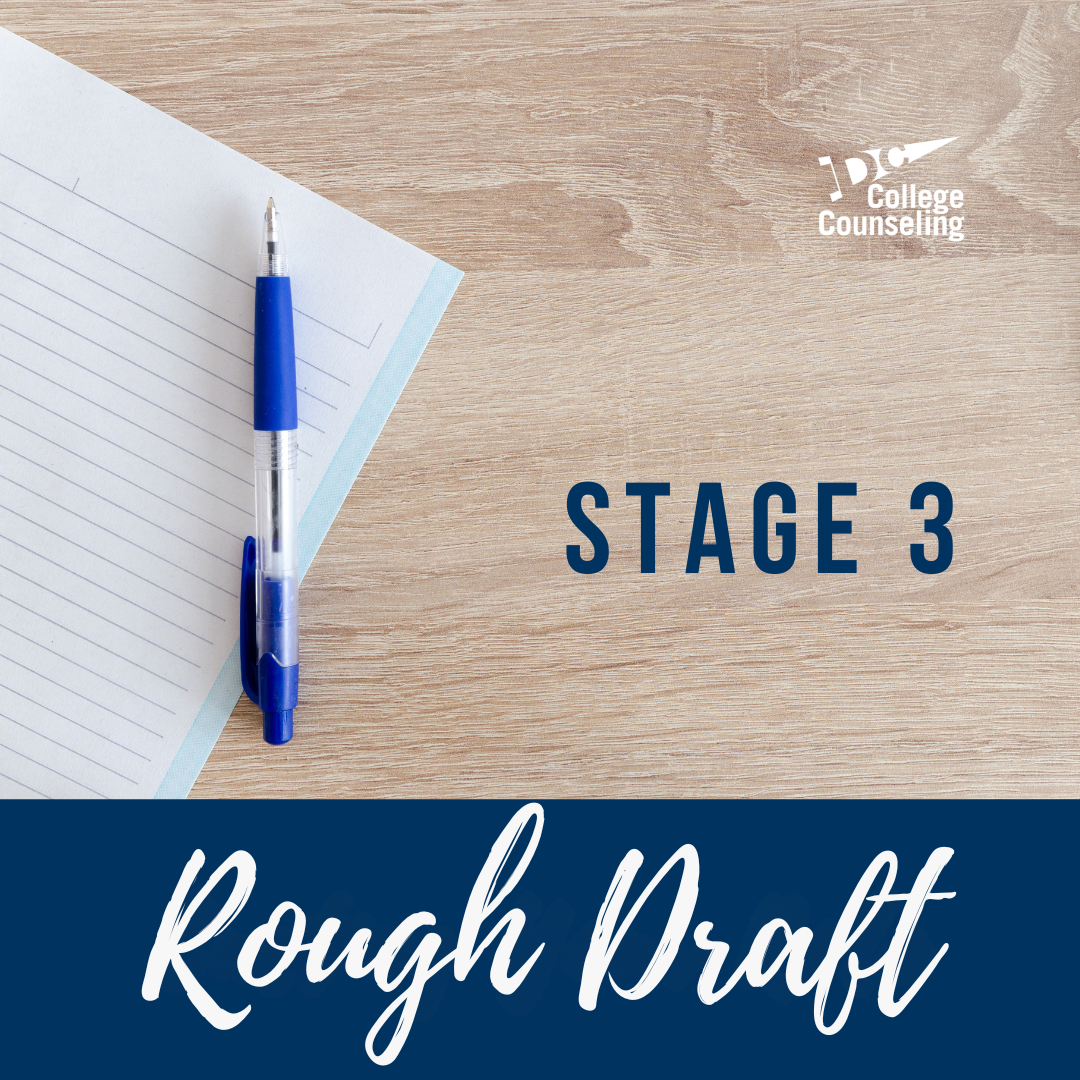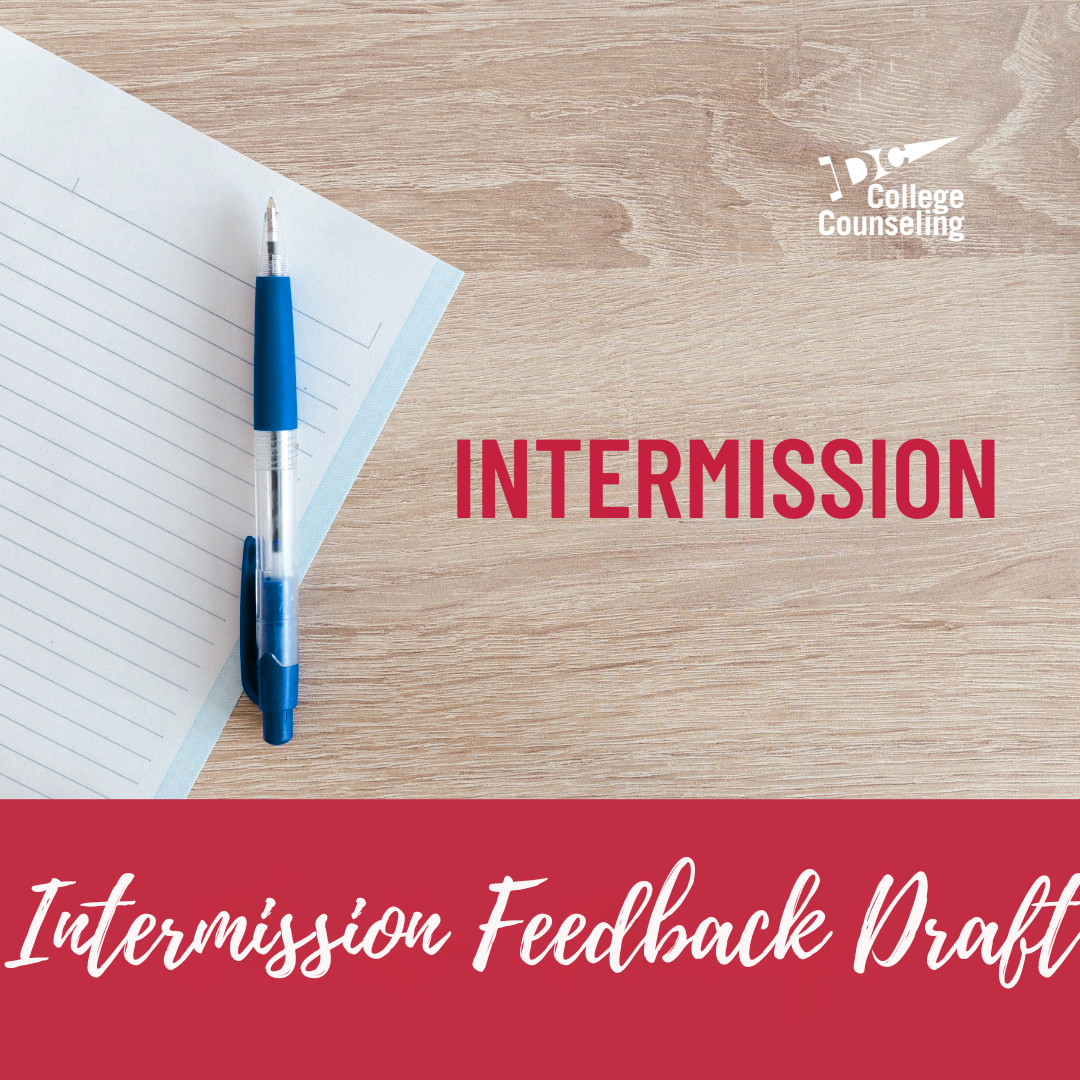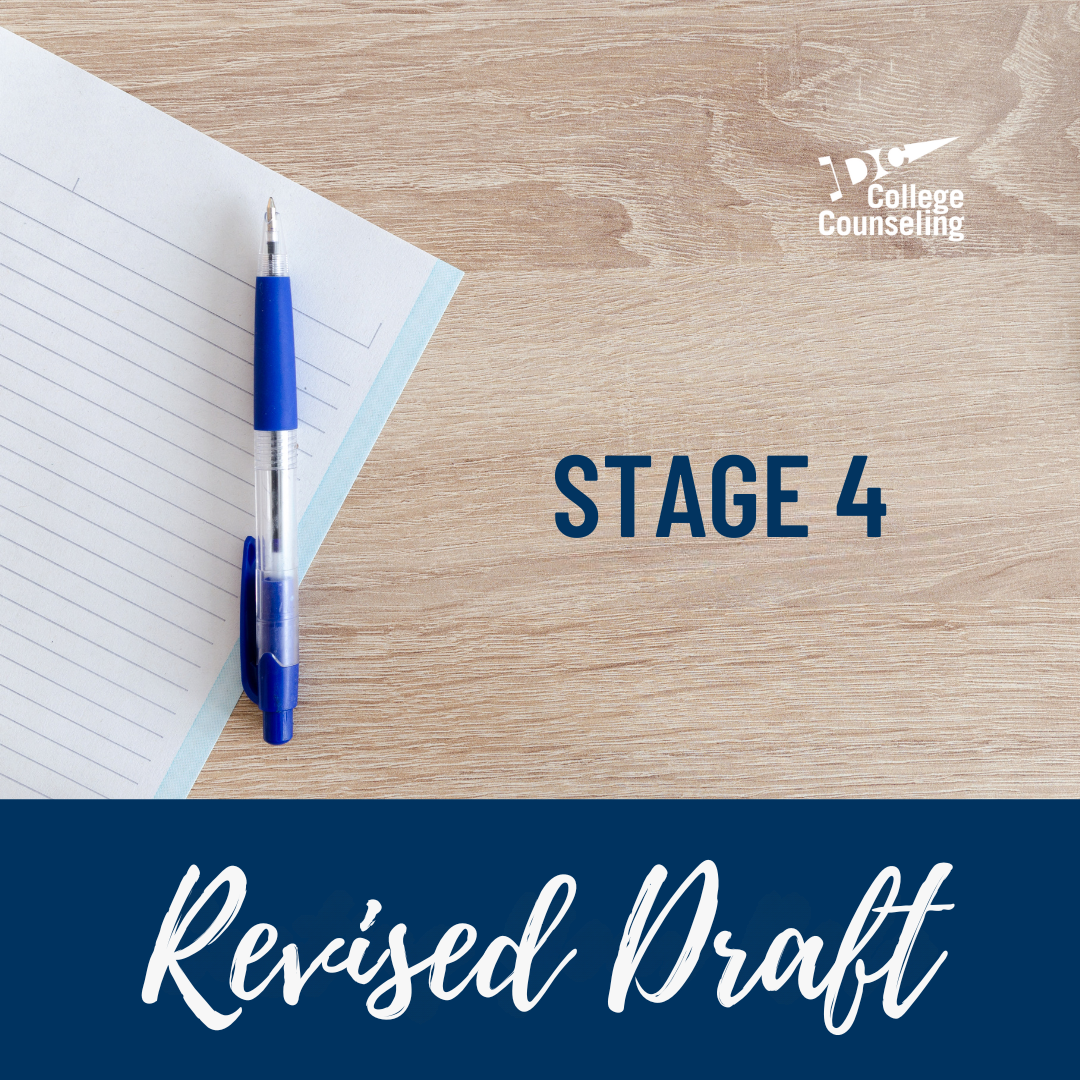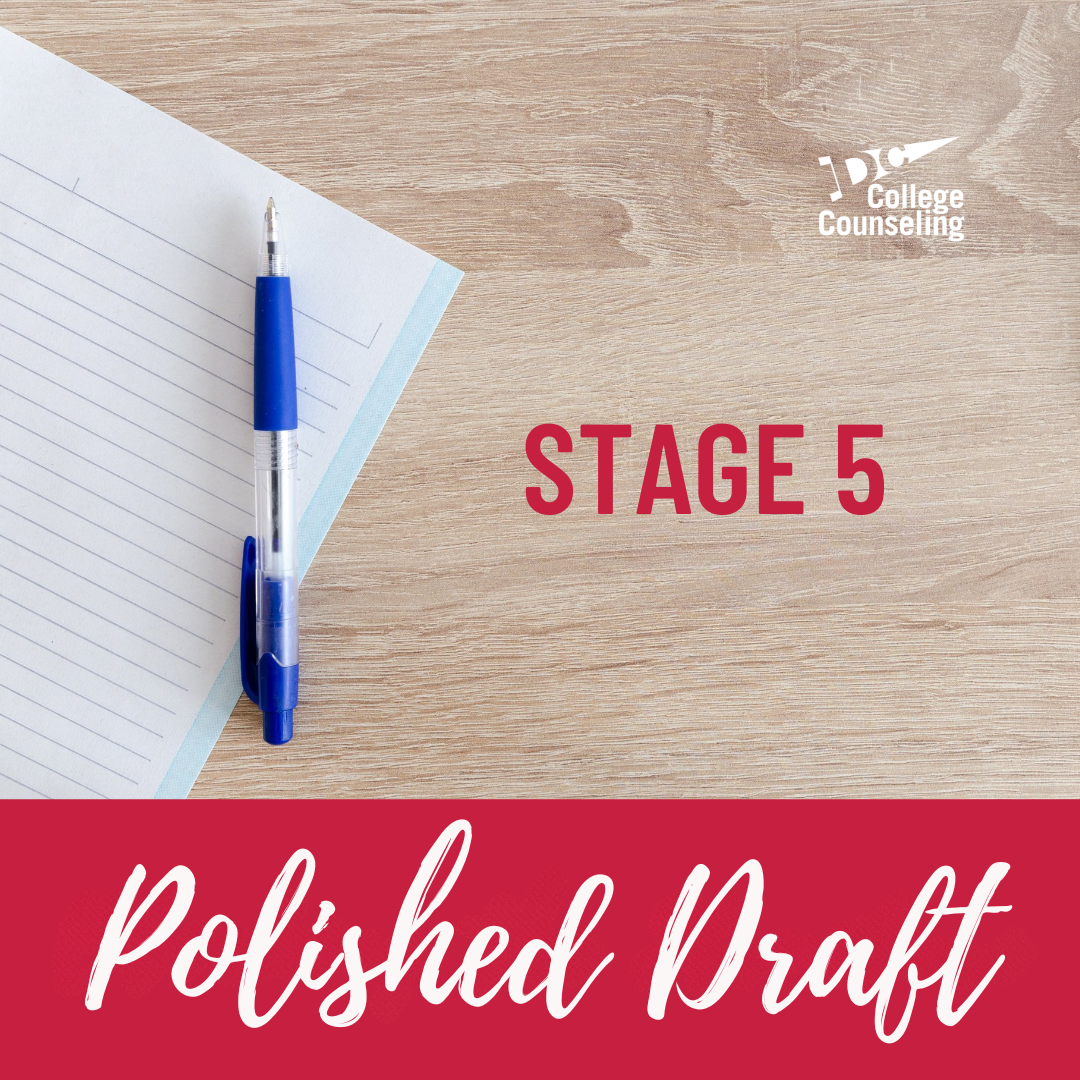RETURN TO STAGE HOMEPAGE
STAGE 3: Rough Draft
IN THIS STAGE YOU WILL:
Write an initial rough draft of your college admissions essay
Review your draft with an essay coach and create a revision plan
This is the STAGE you’ve been building toward: your first rough draft.
Using your STAGE 2: Blueprint, you’ll write a complete draft of your essay. We emphasize the word “rough” because this draft is not meant to be polished. The goal is simple: get your ideas out of your head and onto the page so we can see how your story is taking shape.
Think of this as your starting point. Strong college essays aren’t written in one attempt. They’re written through revision. In later STAGEs, you’ll return to this draft to reshape sections, sharpen your focus, improve organization, and refine your voice. Each version will be clearer and stronger than the last.
For now, focus on content, not perfection. Don’t worry about grammar, transitions, or whether every sentence sounds “good.” Treat this draft like a rehearsal. You may write too much in one section and not enough in another. You may wander off topic or uncover details you didn’t remember until you started writing. That’s normal – and useful!
Let your STAGE 2: Blueprint guide you, but don’t be afraid to see where the writing takes you.
A Note on Word Count
Do not stress about word count at this STAGE. It’s better to write too much than too little. Even if your draft ends up close to 1,000 words, that’s fine. As you revise, the essay will naturally move toward the Common App’s 650-word limit.
Reviewing Your Draft
In Meeting #3, you and your essay coach will review your rough draft together. This is a working session, not a judgment. You’ll identify what’s working, what needs development, and what should be cut or reshaped. Together, you’ll create a clear revision plan for your next draft.
Your Assignment:
In your personal Google Drive folder, navigate to the “STAGE Essay Program Materials” subfolder. Open the STAGE 3: Rough Draft document.
Write your rough draft in the document
When you are finished, submit your work no less than 48 hours before your next meeting using our Multi-Purpose Submission Form, making sure to copy and paste the Google Doc link from the STAGE 3: Rough Draft document into the Asana form. Be sure to click ‘SUBMIT’ at the bottom of the form.
The STAGE Program
RETURN TO STAGE HOMEPAGE


